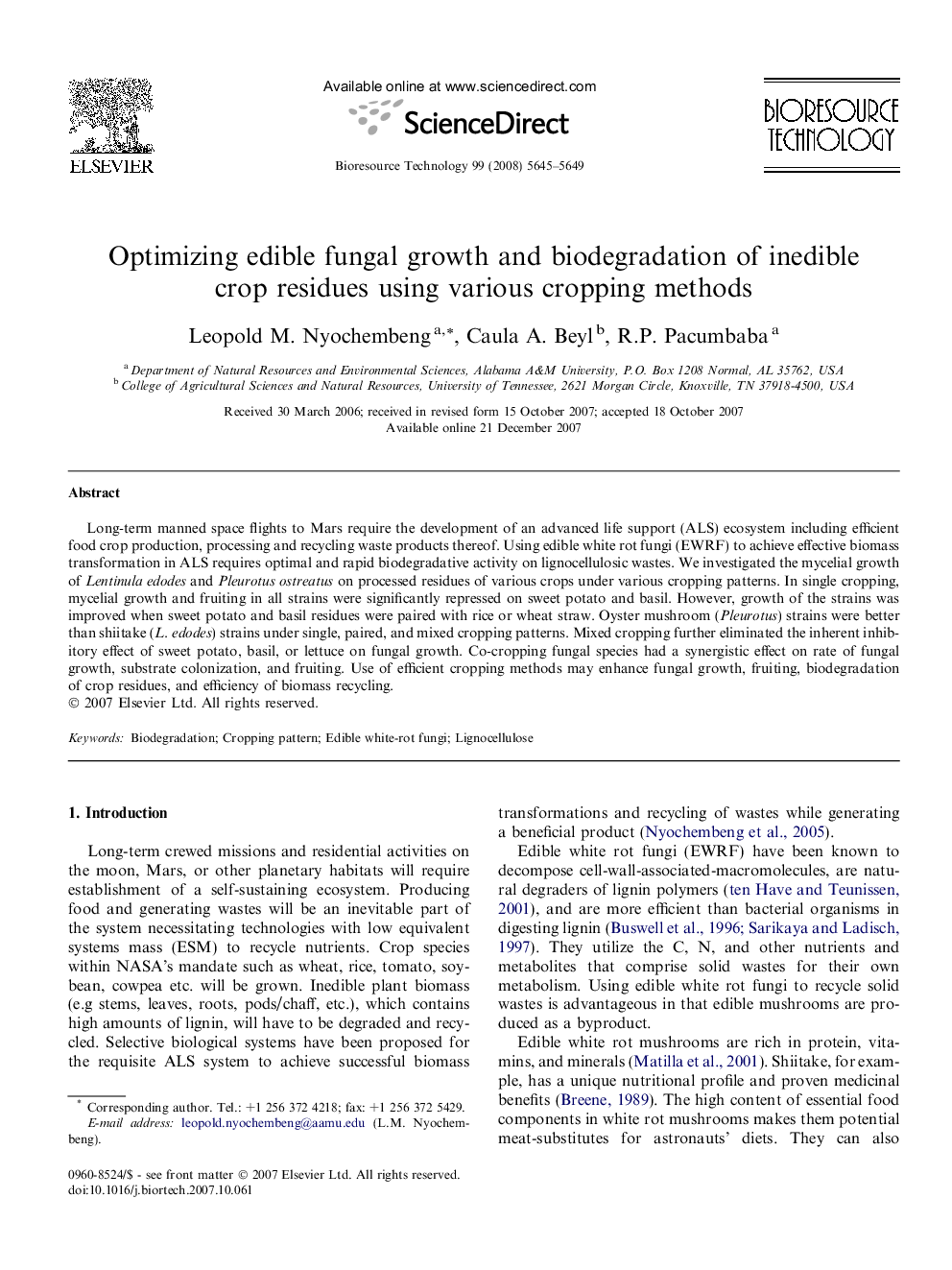| کد مقاله | کد نشریه | سال انتشار | مقاله انگلیسی | نسخه تمام متن |
|---|---|---|---|---|
| 685123 | 889033 | 2008 | 5 صفحه PDF | دانلود رایگان |

Long-term manned space flights to Mars require the development of an advanced life support (ALS) ecosystem including efficient food crop production, processing and recycling waste products thereof. Using edible white rot fungi (EWRF) to achieve effective biomass transformation in ALS requires optimal and rapid biodegradative activity on lignocellulosic wastes. We investigated the mycelial growth of Lentinula edodes and Pleurotus ostreatus on processed residues of various crops under various cropping patterns. In single cropping, mycelial growth and fruiting in all strains were significantly repressed on sweet potato and basil. However, growth of the strains was improved when sweet potato and basil residues were paired with rice or wheat straw. Oyster mushroom (Pleurotus) strains were better than shiitake (L. edodes) strains under single, paired, and mixed cropping patterns. Mixed cropping further eliminated the inherent inhibitory effect of sweet potato, basil, or lettuce on fungal growth. Co-cropping fungal species had a synergistic effect on rate of fungal growth, substrate colonization, and fruiting. Use of efficient cropping methods may enhance fungal growth, fruiting, biodegradation of crop residues, and efficiency of biomass recycling.
Journal: Bioresource Technology - Volume 99, Issue 13, September 2008, Pages 5645–5649